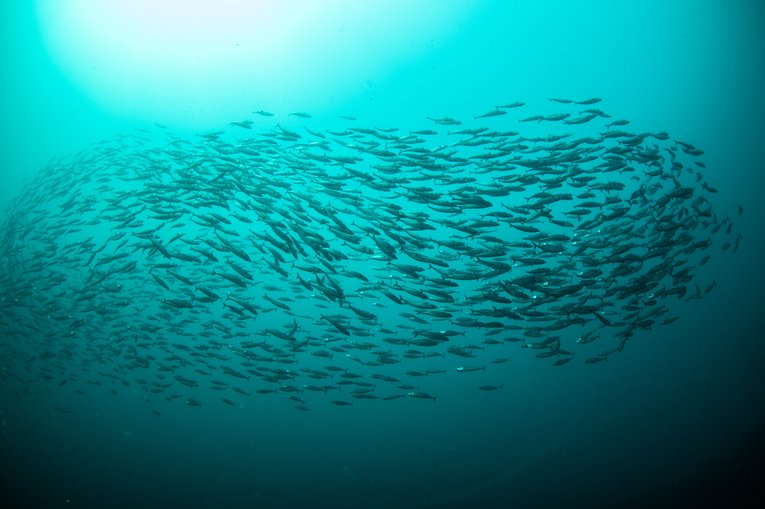
Positive ocean news: November 2022 edition
To celebrate the recent wins for our ocean, we’ve rounded up some top positive ocean news stories from November – enjoy!
Near elimination of fishing in finally protected site

Credit: Cathy Lewis
Our latest research on fishing taking place in Marine Protected Areas (MPA) highlights the effectiveness of proper protections in these vulnerable, and vital, areas. Fishing activity in an English MPA dropped by 98% following a ban on bottom-towed fishing gear.
From 2015-2019 between June and October, an average of 770 hours of bottom-towed fishing took place within Dogger Bank MPA, showing it was never truly protected. However, following a byelaw which bans bottom-towed fishing from June 2022, this dropped to just 13 hours within the same period - a decrease of 98%.
Five times the size of the Lake District National Park, Dogger Bank once boasted an abundance of marine species such as halibut, cod, ling, and angelshark - all of whose populations are currently struggling in UK waters. With the new protections in place, there’s hope that these species, and others, can recover.
Norway plans first open-water sanctuary for whales
By spending his time around fishing boats and eating what the fishers were trying to catch, Hvaldimir was at risk of being killed.
To protect this sociable creature, the charity OneWhale was set up, and is now working with the local government to create a sanctuary for whales like Hvaldimir, which were trained by humans and spent time in captivity. If OneWhale raises the £250,000 needed to create the 500-acre reserve, it would be the world’s first open-water whale sanctuary in the Norwegian fjords.
The project hopes that the reserve would keep the whales safe from human harm, while they learn to hunt for themselves and interact with one another, before finally being released back into the wild.
Read the full article on the Guardian website
Scientists discover ‘world’s largest’ seagrass meadow

Credit: Benjamin L. Jones
By strapping cameras to tiger sharks swimming in the Bahamas, scientists recently discovered what is thought to be the world’s largest seagrass ecosystem. The site, covering a whopping 35,000 sq miles of the Caribbean seabed, increases the world’s known seagrass coverage by over 40%.
Mapping seagrass meadows is hugely challenging. Sending human divers to the seabed is expensive, difficult, and slow, so researchers decided to strap cameras to tiger sharks instead. As they spend a lot of time in seagrass meadows, can cover a vast area in a short time, and don’t seem to notice when a camera is attached to them, tiger sharks made the ideal candidate.
Seagrass meadows provide nurseries and feeding grounds for lots of marine species, act as a buffer against coastal erosion, and store vast amounts of carbon, making them crucial in helping to fight climate change.
As it’s thought around 7% of seagrasses are lost globally every year, and the UK has already lost 90% of its seagrass meadows over the past few centuries, this latest discovery is very happy news indeed!
Read the full article on the Guardian website
Marine Conservation Society to take legal action over ocean sewage spills

Credit: Andrei Metelev/Shutterstock
This month, a court case was filed against the UK Government over its failure to sufficiently act on the deluge of sewage which is regularly spilled into rivers, beaches, and bathing waters.
The UK Government's latest sewage reduction plan gives water companies until 2050 to improve England’s storm overflows to reduce mass-scale sewage discharges – of which there were 372,533 last year alone. Under this plan, companies can continue to spill sewage into rivers, beaches, and bathing waters, without facing consequences. In 2021, sewage poured into Marine Protected Areas for a total of 263,654 hours.
As a co-claimant in a legal case against the UK Government’s Department for Environment, Food and Rural Affairs (DEFRA) we are calling for a rewrite to its Storm Overflows Discharge Reduction Plan 2022 to:
- Impose tighter deadlines on water companies
- Redevelop the Plan to apply to coastal waters which are, currently, almost entirely excluded.
Germany calls for ‘precautionary pause’ on deep-sea mining
This follows calls from France, New Zealand, and Spain to stop exploiting metals from the seabed until further research has been done to assess the environmental impacts of doing so, and until strict regulations and standards are in place. Germany, one of the world’s biggest economies, holds 31 licenses for seabed exploration, making it a significant nation to voice its opposition.
Read the full article on the Guardian website
Gadget created to reduce shark bycatch by up to 95%

Credit: Jakob Owens/unsplash
It’s estimated that 100 million sharks, skates and rays are killed by fishing and bycatch each year. But marine scientists are hopeful that they have found a solution which can help reduce this by 75-95%.
The SharkGuard is a battery-powered device to be clipped onto fishing lines, which emits a short electrical pulse every two seconds. If sharks come near the baited hooks of the fishing lines, the pulse overstimulates electrical sensors on the shark’s face, causing it to swim away.
When trialled by a French tuna fishery, SharkGuard reduced the number of blue sharks accidentally caught by fishing gear by 91%. It also reduced the number of stingrays caught by 71% . This new technology provides the opportunity to protect these species, which have declined by over 70% since the 1970s due to fishing practices.
Read the full article on the Guardian website



